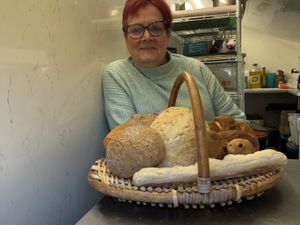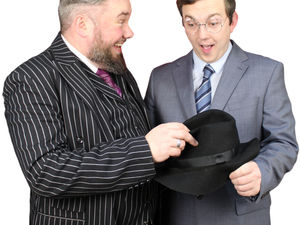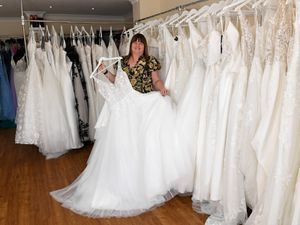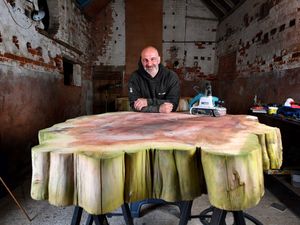I hate period TV shows - but Peaky Blinders was rock 'n' roll
[gallery] He wishes he could give us a better story. For a moment, he even thinks of making one up. The truth seems somewhat humdrum, it's all too prosaic.
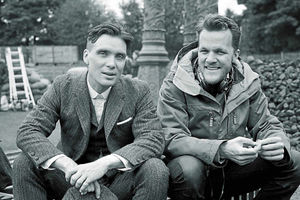
Otto Bathurst, Britain's most exciting director, is ruminating on how he began his career. Hopes that he'll talk of a eureka moment are ill-founded. He drifted into his vocation almost by chance.
"It's very unromantic. I often read director's biographies and hear stories about how as a five-year-old they went to their first movie and once the lights went down and the silver screen lit up, they knew . . .
"Not so for me. Perhaps I shall invent a story like that.
"I went to university to study civil engineering. Within five minutes of my first lecture, I realised and felt the huge mistake I had made. I left immediately. I came to London and got a job making tea in an editing facility. And that is where I caught the bug. So that is the truth!"
Ah, the truth.
Otto had grown up in Dudley and Bridgnorth and occasionally returns to Shropshire to see family and friends. His latest work, Peaky Blinders, BBC's new interwar gangster drama, has just hit the screens.
It stars chameleonic actor Cillian Murphy, best known for his role as the Scarecrow in the latest Batman films. He's joined by the award-winning Skyfall actress Helen McCrory.
Sam Neill, the New Zealand actor who had leading roles in The Piano and Jurassic Park, is also present. Paul Anderson, best known as Allen in The Sweeney; Joe Cole, from The Thick Of It and Professor Benjamin Zephaniah, Birmingham's rasta poet, complete Peaky Blinders' remarkable cast.
The six-part piece was created by Birmingham writer Steven Knight, and is set in 1919. It is a tumultuous mix of despair and hedonism, which focuses on returning soldiers, newly minted revolutionaries and criminal gangs all fighting for survival in an industrial landscape gripped by economic upheaval.
The central character is Thomas Shelby, whose family run the most feared local gang, the Peaky Blinders. They are named for their practice of sewing razor blades into the peaks of their caps and make money from illegal betting, protection and the black market.
Otto says: "My roots are in the Black Country and Shropshire and my mum does the accent, she's brilliant."
His mum, Elizabeth Strachan, who lives at Nash, between Ludlow and Tenbury Wells, saved him a small fortune.
"Normally, on a piece like this there'd be a vocal coach on set throughout. We shot it over three months and so that would have cost us an absolute fortune. I can do the accent so I was able to pull people up if they got it wrong. The cast knew I'd got their backs covered, so they could let loose and act. I never thought that my Midlands roots would be significant on my film-making career, but there you have it."
Bathurst is a big-hitter. He came to prominence just before 2000. During the Summer of Lad, Otto was doing what most twentysomethings were doing: kicking a ball around a park and drinking continental lager.
Through the fug of Stella Artois and opinions of a national football team that employed three managers in a season – Glen Hoddle, Howard Wilkinson and Kevin Keegan – Otto was plotting. He had been working in TV production houses, learning his craft, and was ready to shoot his first film. It was a parody on lad culture called A Man's Best Friend, starring Andrew Lincoln and Lisa Snowdon, with a soundtrack by Blur.
"It came out when lad culture was on the rise," says Otto. "It was the time of Blur and Parklife, when it was cool to be a lad and drink beer. It was a very light-hearted parody on lad culture. The idea was that if we all became lads the human race would disappear because there would be no reproduction – we'd be too busy playing football. It was 12 minutes long and it got me an agent. Then, away I went."
Soon after, he made episodes of Urban Gothic, Teachers and Hustle before landing a gig directing Criminal Justice. It marked a turning point. Starring the late, great Shropshire actor Pete Postlethwaite and the brilliant as-then new-found star Ben Whishaw, it catapulted Otto into the major league. Criminal Justice won two BAFTAs, for Best Drama Serial and best writer, three Royal Television Society Awards and an International Emmy.
He bought the best out of complex and talented actors. "You choose brilliant people and inspire them. That's what I do. I choose brilliant people. It's also down to the writing. There's so little good writing out there. If you offer good writing you get Ben Whishaw, you get Pete Postlethwaite. You know, Pete was the greatest. He was an ace in the pack. Then you need a great crew. Everybody gets inspired by the writing. Everybody goes 'wow!'." Otto made BBC's stunning biopic Margot, starring Anne-Marie Duff, which explored the complex relationship between Dame Margot Fonteyn and Russian dancer Rudolf Nureyev. Black Mirror, the mini-series created by Charlie Brooker which explored the dark side of life and technology, followed. And then he began work on Peaky Blinders, this season's big TV show.
"I have a fairly lurid hatred of period TV in this country. It's done in a very reverential way, in a kid glove way. It's all very careful. We treat our classics with so much respect, it seems we forget that we're in the business of entertaining people.
"Peaky Blinders came along and nobody had ever heard of it. Birmingham had been flattened at that time, the early 20th century is a lost era.
"That was really exciting because it gave me a blank canvass. I could create this epic, almost like a Western. Peaky is like a big epic western/gangster movie. Birmingham looks like Blade Runner.
"I knew that we'd get an amazing cast for it. Actors are crying out for this level of quality. When I was approached, I told them that it would have to be very rock'n'roll. That was the only way I was going to do it. I said 'If I do it, we have to go the whole hog, and we did it.'"
Otto's characters became kings of the city. "I wasn't interested in them being kings of Stourport, I wanted them to be the kings of New York."
He filmed some scenes in the Black Country Museum, with others being shot on the Liverpool docks and further scenes being shot in Yorkshire.
"The casting was brilliant. The big dream was to get Cillian Murphy. He's a very slow burn, you don't get much out of him for two or three hours and that's the joy of long-form TV.
"You need somebody who is intoxicating to look at and has amazing screen charisma; but you also need somebody who is an incredibly serious and very, very committed actor. Cillian was all of those things: he spent three months perfecting his Birmingham accent.
"Then we got Helen McCrory, Joe Cole, Benjamin Zephaniah and all of these other sensational people. You know what, I'm almost more proud of the C and D list actors, the bit part players, than I am of the A-listers.
"The piece was all about attention to detail. If you watch TV and the barman is crap, or the street sweeper is crap, it bursts the bubble. So we were hanging out in boxing gyms and factories to find proper faces. They were our extras and the world they created was totally believable. We had amazing sets and locations and were using proper equipment: we had big toys. It's not Midsummer Murders.
"It was fun and we pushed it. The ambition was to take on the Americans and it's better than Broadwalk Empire. The big cheeses have seen it and they really like it. Nick Cave and Jack White were among the people who did the soundtrack. They watched it and liked it and said yes."
Otto is already working on new projects, amid the maelstrom of critical acclaim for Peaky Blinders. He's got six movies in development and is close to bringing two of those to life. He's interested in working with people who are good, rather than famous. He follows quality and credibility, rather than implausibility.
"There are people I'd like to work with. Mark Rylance is a genius. Then you get the obvious ones: I'm a massive fan of Sean Penn, Christopher Walken, Michael Shannon, Nicole Kidman, Julianne Moore and Joaquin Phoenix.
"It's cool. I'm unashamed about that. I've got a bit America about it. They are very upfront about making entertainment – about being good. We're polite. We don't have to make British TV the way we make it, being small and simple, reserved and cold. I want people to enjoy it.
"The ambition is to have my cake and eat it. We are in the entertainment industry. We still consider film making to be an art form or a hobby. It's all about entertainment, about making cool, credible and intelligent work that people can enjoy."
Peaky Blinders in on BBC One on Thursday, 9pm
By Andy Richardson

